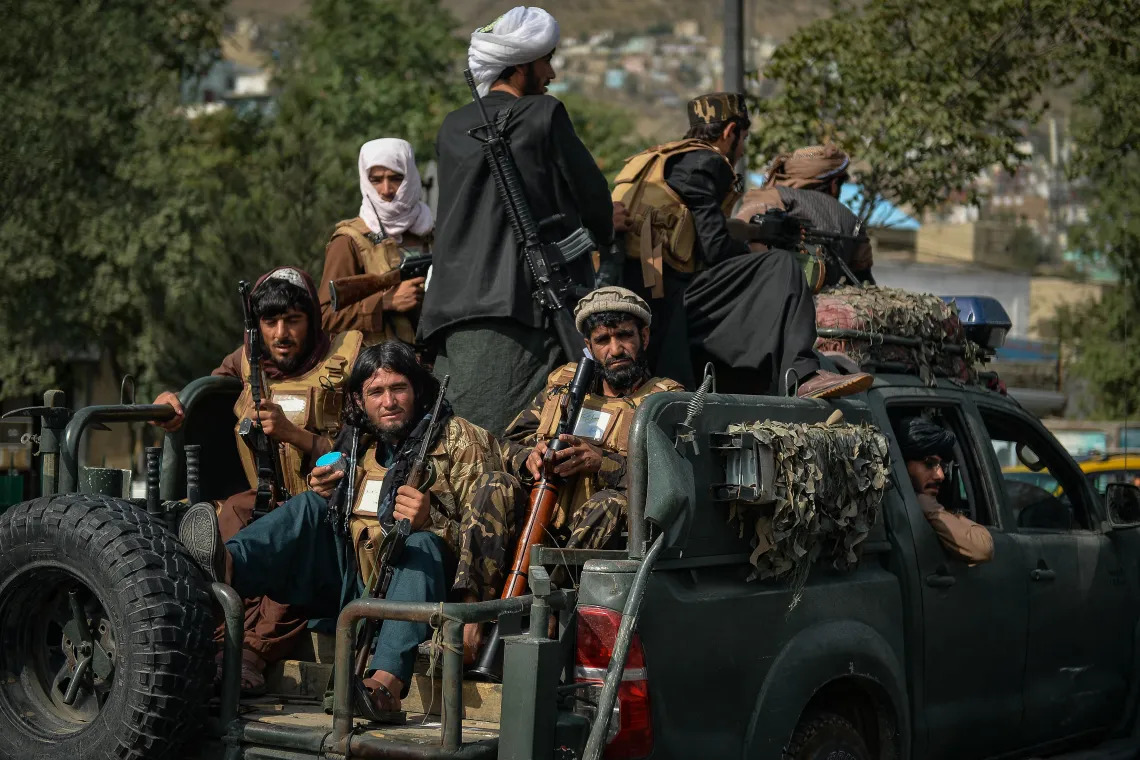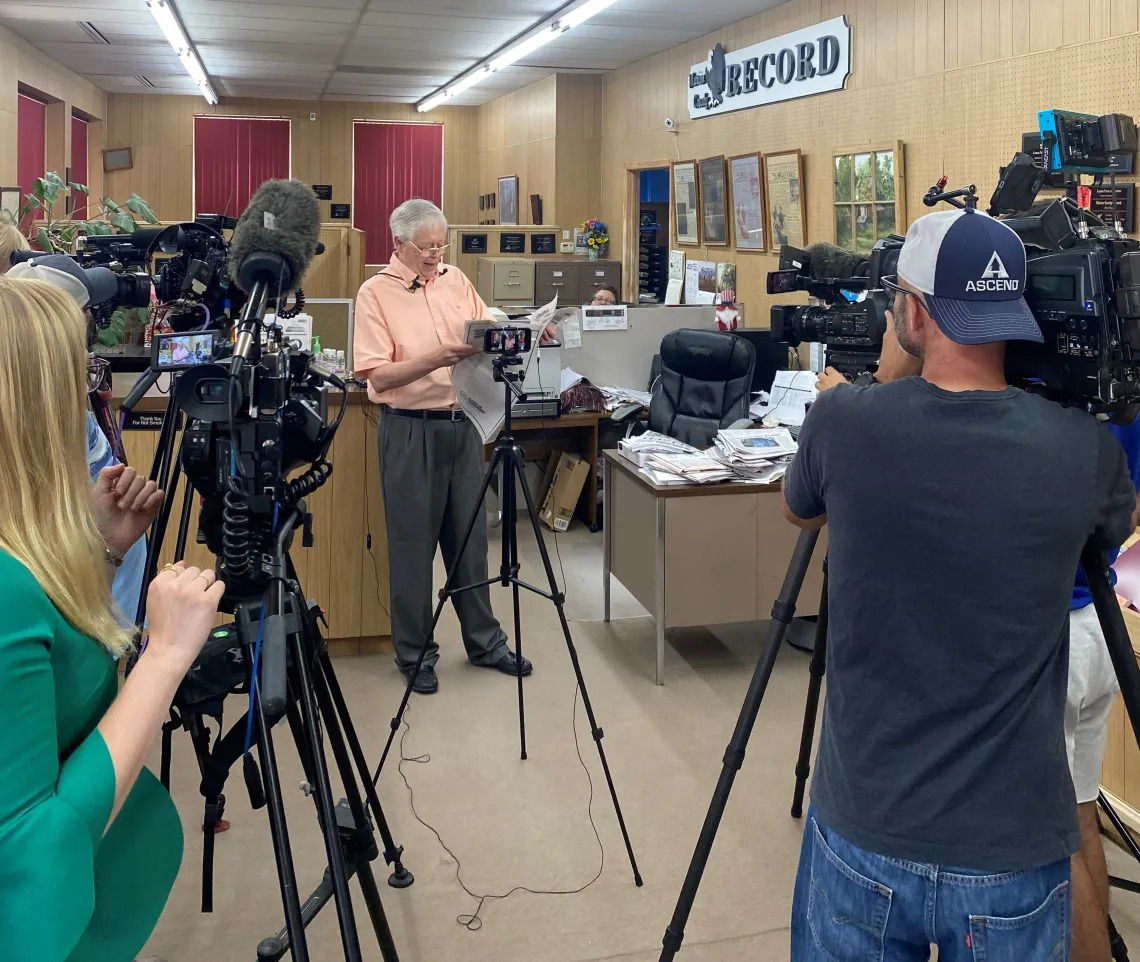|
CPJ Insider: September 2023 edition
|

Taliban fighters patrol along a street in Kabul on August 31, 2021. Media repression has worsened in Afghanistan in the two years since the Taliban returned to power. (AFP/ Hoshang Hashimiarlos)
Afghanistan Two Years Later: An Analysis by CPJ Asia Program Coordinator Beh Lih Yi and Asia Researcher Waliullah Rahmani
So far in 2023, CPJ has provided crucial assistance to at least 30 journalists from Afghanistan amid continued threats from the Taliban that have forced many into exile. When the Taliban took over Afghanistan in 2021, the regime promised to protect press freedom and women’s rights in order to show the world they had moderated their stance since the last time they ruled Afghanistan in the late 1990s. The Taliban’s promises immediately fell flat. So far this August, authorities have detained six journalists and banned women from broadcasting. Learn more »
|
|
|
 CPJ travels to Kansas after a shocking police raid of a newsroom CPJ travels to Kansas after a shocking police raid of a newsroom
After authorities seized computers and phones, including personal cell phones, from the Marion County Record, CPJ’s U.S. and Canada Program Coordinator Katherine Jacobsen traveled to Kansas to offer support to the paper as it worked to publish its first edition after the raid. Learn more »
|
|
Must-read
CPJ spoke with journalists in Ukraine who lived through a Russian missile attack on a popular pizza restaurant in June. The Ria Lounge was a hub for journalists, aid workers, off-duty military, and others looking for a place to eat before the evening curfew. The bombing illustrates the risks journalists face even when they’re off duty. “While my eyes were closed, I heard a dull thud of the impact,” British freelance photojournalist Anastasia Taylor-Lind recounted to CPJ, “and then I heard the sound of everything shattering and flying, the sound of all the glass breaking, everything coming through the air.”
CPJ participated in a fact-finding and advocacy mission to the Netherlands in late June and met with journalists, press freedom advocates, and government officials amid an increasingly hostile media climate in the region, following the killing of crime reporter Peter R. de Vries. “[De Vries' killing] had a chilling effect on journalists. Experienced crime reporters continue publishing. I do. But I let the police know in advance. That’s new. I wouldn’t do so before,” crime reporter Paul Vugts told CPJ.
CPJ spoke with Peru’s Manuel Calloquispe whose journalism exposes environmental damage from illegal Amazon mining – and makes him a target for his work. Journalists who cover the environment “need courage and willpower to cover this beat,” Ricardo León, an editor who works closely with Calloquispe told CPJ, “What struck me about Manuel is that he is one of the few journalists in the region strongly opposed to the industry.”
|
|
CPJ in the news
“Torture, prison, even murder... the threats faced by our free press,” The Evening Standard
“Fernando Villavicencio promised to crack down on Ecuador’s ‘narco state.’ It made him powerful enemies,” CNN
“Iran Summons British Envoy Over His Social Media Post Calling For Release Of Detained Journalists,” The Associated Press
“Parliament urged to reconsider anti-press freedom bills,” Dawn
“News: CPJ urges immediate release of journalist Bekalu Alamrew, protection of press freedom in Ethiopia,” Addis Standard
“Kansas paper raid shines light on rising anti-media rhetoric in US,” The Guardian
“Biden administration warns Guatemala against rejecting democracy in presidential election,” The Los Angeles Times
“Journalist Group Calls to Probe Alleged Poisoning of Exiled Russian Journalists Critical of Russian War,” Haaretz
“Advocates Question Whether Reforms Will Offer Bangladesh Media Greater Protection,” VOA
“Taliban detains Iranian photojournalist, bringing media arrest tally to 5 in less than a month,” Arab News
|

|
|